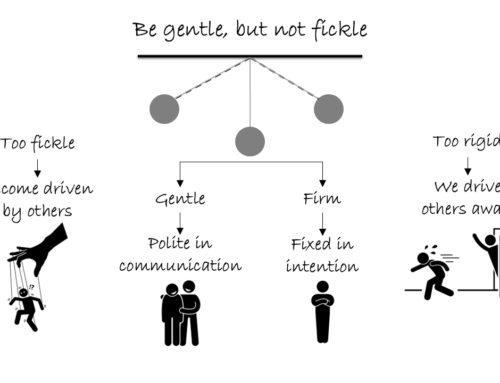
Generic envy refers to the general negativity that one class of people feel towards another better-endowed class, say, the lower class towards the middle class or the upper class. Specific envy refers to the concentrated animosity that one person feels towards another person.
Both forms of envy are debilitating – they sap our mental energy, sentencing us to agonize over what we don’t have. But specific envy is doubly dangerous because it hurts not only us but also others. It conjures up perverse fantasies about the downfall of those whom we envy and impels us to act in evil ways to bring about their ruin. And whereas our normal human sensitivity makes us feel saddened on seeing the suffering of others, envy slaughters this sensitivity. It makes us sadistic, finding a sick delight in not just seeing misery come upon others, but in even inflicting misery upon them.
In the Mahabharata, Duryodhana had a generic envious nature. But his envy became specific when it became focused on the Pandavas, especially on their prosperity after the celebrated Rajasuya sacrifice. Being blinded by this envy, he became so malicious that he tried to disrobe and dishonor their wife in a public assembly in the presence of his elders – something that even uncivilized people would have hesitated to do.
Given this degrading nature of envy, it’s natural that the Bhagavad-gita (16.03) declares non-enviousness as a characteristic of the godly.
How do we protect ourselves from envy?
By cultivating spiritual wisdom.
It helps us understand that material things don’t bring any real happiness, so why should we let ourselves be unhappy about not having things that anyway don’t make their possessors happy? Spiritual wisdom culminates in devotion, which grants us higher inner happiness, thereby making the whole gamut of emotions associated with envy irrelevant.
Explanation of article:



Hare Krishna Prabhuji
PAMHO
Prabhuji is it right to envy from a advanced devotee for his advancement in KC ( i am not much advanced) as you said why to envy of someone having material things as they don’t bring any real happiness?
Desiring to serve
Himanshu
Answered here:
http://www.thespiritualscientist.com/2014/04/is-it-right-to-feel-envious-of-advanced-devotees-for-their-spiritual-advancement-if-not-how-to-deal-with-it/
ys
ccdas